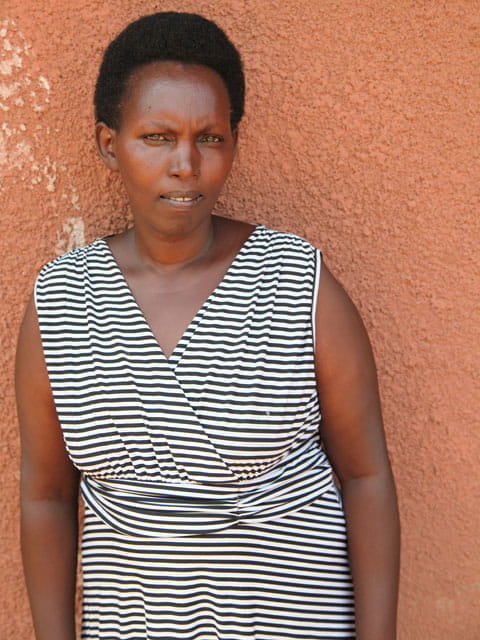The little church that could
After the Rwandan genocide 25 years ago, Immaculate's church was down to just three worshippers. However, she couldn’t bring herself to close it and move on.
Written by Tearfund | 29 Apr 2019



Written by
Written by Tearfund
After the Rwandan genocide 25 years ago, Immaculate’s church was down to just three worshippers. However, Immaculate couldn’t bring herself to close it and move on.
The church, once a place of joyful exuberance, felt like a hollow shell. It all happened so suddenly.
When the Hutu attackers came after the Tutsi of Bugesera in 1994, many of them fled to churches hoping for sanctuary. Their attackers paid no heed and and openly slaughtered thousands of men, women and children inside the churches. Immaculate managed to escape during the slaughter.
When she returned, few people had survived. Immaculate’s church – once packed with worshippers – now consisted of herself, her husband and her father-in-law.
‘‘I asked that God could bring those people that massacred us to come and worship with us.’’

Immaculate: 'Once again, I can open my mouth and sing.'
Running on empty
‘Once when I came to the church, I said: “God, why did I survive?”’ She remembers. ‘“I have no one to work with, no one to worship with.” I felt like there was no point in continuing. The church had been broken. I asked God, “Will I ever again be able to come before you and say thank you?” It was a time full of tears.’
Somehow, though, Immaculate couldn’t bring herself to give up and join another church.
‘I prayed for God to let me go to other churches, because I wanted people who would be close. But my heart was telling me, “You are a member of this church, and if you go, who will stay here?”’
It was then that Immaculate chose to pray a bold, even shocking prayer: ‘I asked that he could bring those people that massacred us to come and worship with us.’
Green shoots
Gradually, remarkably, her prayer began to be answered. Both Hutus and Tutsi were slowly added to the congregation – men and women who had lost their family and friends were worshipping God with others who had been involved in the killings.
‘We have had training and workshops about unity and reconciliation. And God has healed our wounded hearts,’ says Immaculate. ‘My heart was badly wounded, but through the church and partners who teach us to forgive, in my heart, I have forgiven them and I love them.’
The group that worked with her struggling church is the Kigali Diocese of the Anglican Church. They are partnering with Tearfund in the region to help churches like Immaculate’s discover more of their true purpose, as a light to their communities.
‘'Once again, I can open my mouth and sing. This was the time that I was crying for.’
’
Beacon of hope
And that’s exactly what Immaculate’s church has become. Currently they are helping to run a number of self-help groups (SHGs) – small scale community savings groups throughout the village. Thanks to the SHGs the women can now pay school fees for their children, buy health insurance, buy animals, bring electricity to their homes, or buy supplies for their businesses.
Families are climbing out of poverty thanks to all the good things happening in Immaculate’s church, which is, in turn, thanks to Tearfund’s support. Immaculate’s church has become a beacon of hope for the whole village.
It’s so much more than Immaculate could have dreamt of when she decided to stay loyal to her three-strong congregation.
‘God has transformed us: in our families, in the church. I give thanks to God, for he has healed my wounds. Once again, I can open my mouth and sing. This was the time that I was crying for.’
*Name has been changed to protect anonymity.
Pray for this
Dear Lord God, we pray for the nation of Rwanda as it remembers the genocide, 25 years on. Thank you for all those who, like Immaculate and her church, have chosen the path of forgiveness reconciliation and renewal. We pray that as they continue to grow and heal as a nation, you will allow more and more people to escape poverty and prosper.
Amen
Share this page
Share this page to spread the word and help support those in need.

Get our email updates
Learn about our work and stay in touch with Tearfund. Hear about our news, activities and appeals by email.
Sign up now - Get our email updates





.png)
